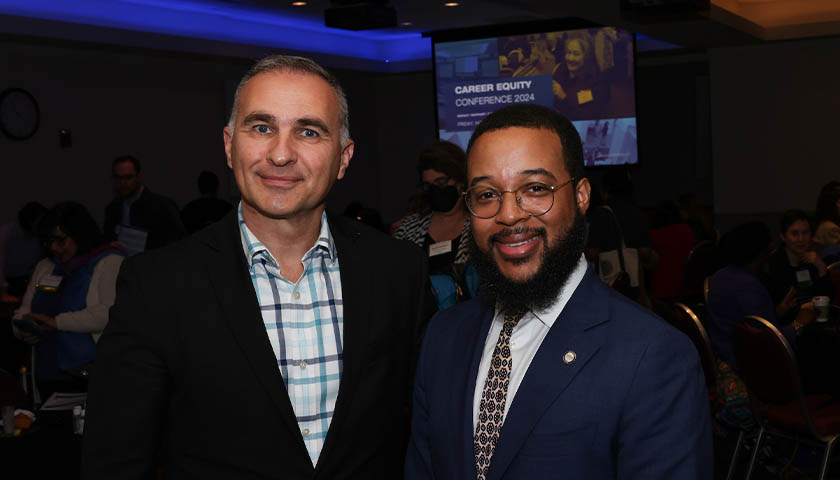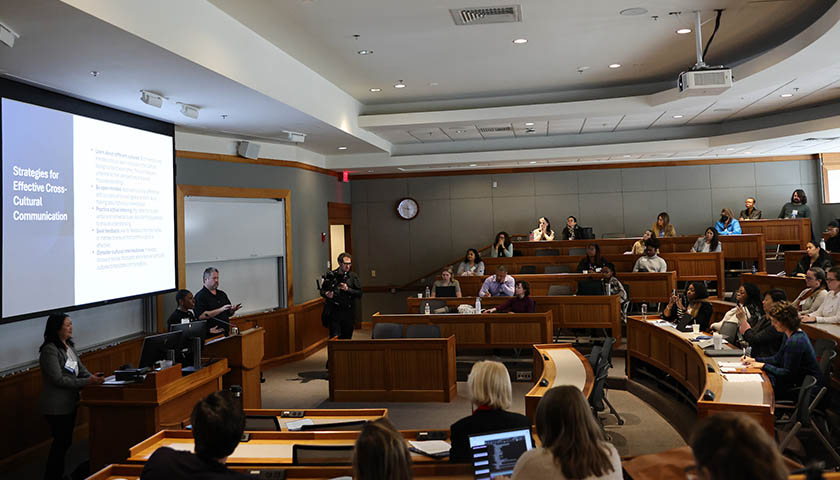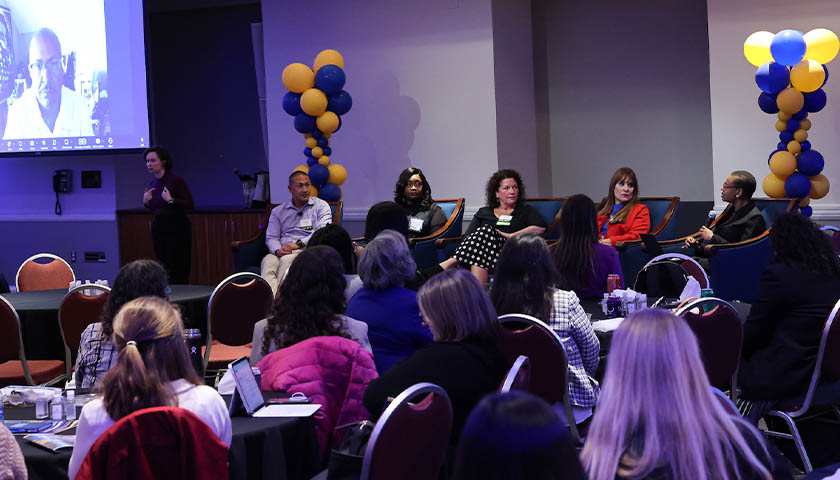“Talking about equity is not just a moral argument, it is not just a social experiment—it is an economic imperative,” Segun Idowu, chief of economic opportunity and inclusion for the City of Boston, told the audience gathered for Suffolk University’s second annual Career Equity Conference.
A focus on equity not only creates “on-ramps to opportunity” for Boston communities that have historically lacked access, Idowu pointed out, but helps strengthen and expand the region’s overall economy. He cited a 2021 study from Massachusetts Taxpayer Foundation, which said that “if we were to close the racial wealth gap between Black and white families just here in the Commonwealth, we’d add $25 billion to the economy over the next five years.”

Idowu was the keynote speaker for the November 22 conference, which drew more than 150 attendees from three dozen different organizations and higher ed institutions for a day of meaningful conversation, professional development, and networking. Hosted by the University’s Center for Career Equity, Development & Success, the conference featured breakout sessions on a wide range of issues affecting career equity, including:
- Nurturing Leadership Potential in Gen Z Professionals
- When Mothers Speak: Attracting and Retaining Mothers in the Workforce
- Preparing Undocumented Students for Professional Careers
- Building Equitable Pathways to Soulfilling Work: The Anti-Racist Career Center
Mimi Gardner, chief equity officer for NeighborHealth—chief sponsor for this year’s conference—led a session on “Building Community Partnerships in the Equity Space.” She emphasized the need for community partners to come together along shared missions and values, pointing to the ways her organization has been able to cultivate local partnerships, like its ongoing relationship with Suffolk University, and how these connections create value not only for students, but for the surrounding community.

Idowu emphasized a similar point in his opening remarks, sharing hard datapoints from the City of Boston showing how vital local businesses are to maintaining a diverse commercial scene throughout the Commonwealth. When investment is made into small or local businesses, particularly those in diverse communities, the local economy is able to create more career opportunities, stronger connections within one’s community, and less shuttered storefronts throughout metropolitan areas.
Idowu also praised SEED, the Suffolk Entrepreneurship and Educational Development Collaborative. Now in development stages, SEED will provide consulting services to Boston small business start-ups, particularly those owned by women and entrepreneurs of color, drawing on the expertise of Suffolk faculty, administrators, and alumni.

Doubling down on equity
“These groundwater issues can’t be workshopped, can’t be trained,” said Ralph Tavares, Jr. of Storbeck Diversified Search Group during the conference’s afternoon panel. Equity, he added, can’t be achieved with a single workshop or online training. “We need to build equity into everything we do.”
The panel, titled “Standing Your Ground,” focused on the need for continued action and support for equitable career outcomes in a political climate that has grown increasingly resistant to DEI initiatives. “This work has never mattered more,” said panelist Jennifer Barthelemy-Nerestant, MPA ’21, secretariat director of the Office of Diversity, Equity, Inclusion and Access for Massachusetts’ Executive Office of Health and Human Services.
“We heard our attendees loud and clear,” Dave Merry, executive director of the Career Center, said after the program. “There is no finish line or stopping point with career equity. If our partners continue to feel strongly about this work, we will continue to host, steer, and support these conversations.”

Contact
Greg Gatlin
Office of Public Affairs
617-573-8428
Beth Brosnan
Office of Public Affairs



